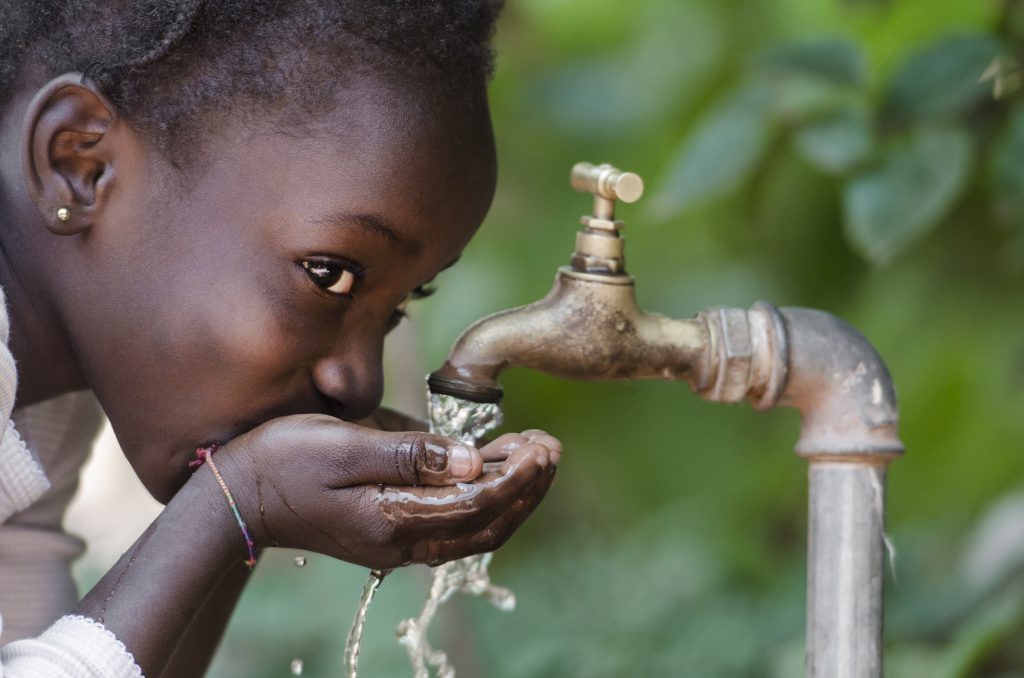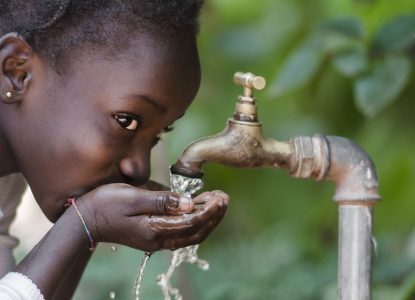By Katherine Marshall, G20 Interfaith Association Vice President, World Faiths Development Dialogue (WFDD), Berkley Center.
– – –
Disrupted progress on the United Nations Sustainable Development Goals (SDGs) and the broad commitments of all nations to achieving them have prompted deep and shared concerns. Amidst the urgent challenges and uncertainties that the COVID-19 emergencies have caused, momentum, focus, and financial progress are at grave risk.
Religious actors are deeply involved in both SDG implementation and nudging and pressing for accountability. Thus, many are sharply focused on assuring that the most vital global commitments are kept—to leave no one behind and to serve those at the margins—and to press forward and be open to possible new directions. On September 14th, during the G20 Interfaith Forum, representatives of institutions and networks that focus sharply on these topics assessed how the G20 leaders and partners can respond and priority areas for attention and action.

Adam Nicholas Phillips recently assumed the position of Director of the Center for Faith-Based and Neighborhood Partnerships at USAID, with responsibility for enhancing the strategic religious engagement of the United States government in development and humanitarian programs. He chaired an exchange that included representatives of three leading networks of religious actors involved in development work: Rudelmar Bueno de Faria, Secretary General of the ACT Alliance; Kirsten Laursen Muth, CEO of the Joint Learning Initiative on Faith and Local Communities; and Peter Prove, Director of International Affairs at the World Council of Churches. Sharon Eubank, First Counselor of the Relief Society of The Church of Jesus Christ of Latter-day Saints, spoke as the leader of a large faith-inspired organization, Latter-day Saint Charities.
Lost Momentum and Opportunities
What emerged most centrally from the discussion was urgent and shared concern about the suffering and lost opportunities that the COVID-19 crisis is causing. Grief piles upon grief, but in many religious circles it has sharpened a sense of purpose and common cause.
The pandemic has set back shared goals and revealed how much more work there is to do. Over 1.5 million children have lost a caregiver due to COVID—and surviving kinship caregivers desperately need support. Sharply increased hunger demands immediate and effective responses, as does the lost learning that results from school closures. Progress on every one of the 17 SDGs and their 169 targets is threatened. Lost momentum for development and delivery of quality services thus belong at the top of global agendas.
The hope is for a sense of purpose to spur enriched partnerships that bring together people from all backgrounds to restore “the souls of our countries.” The group urged pragmatism in commitment to the SDGs, but also openness to new ways of working and new, stronger relationships.
Hunger
The hunger crisis looms large, with famine-like conditions in the Horn of Africa that have not been witnessed in decades. The pandemic has made food insecurity and hunger worse, with damaged supply chains and inflated food prices. One in three children under 5 are hungry; 45% of child deaths are related to under-nutrition; 19.3 million children are at risk of wasting; and the number of people at risk of acute hunger (272 million in 2019) has doubled.
Like climate change, hunger can only be tackled with cooperation. Instead of waiting to see pictures of hungry children and sending food aid, action is needed right now. Ironically, enough food is produced to feed everyone on the planet, but much is wasted, or is grown using extractive industrial models that privilege profit and convenience instead of sustaining the land. The small farmers, herders, and fishermen that produce about 70% of the global food supply need to be included in decision-making that affects them, alongside the women who do so much of the work and own little of the land.
Inequality, Effective Development, and Water
More broadly, the pandemic has exacerbated dysfunctions of societies, shining light on shocking socioeconomic inequalities, and discrimination. Human rights are being undermined. Water is increasingly a source of conflict, while the digital divide leaves children without internet at a deep disadvantage. An often hidden impact is rising levels of violence against women and children.
The heart of development is people working with someone they trust to create long-term solutions to family and community goals, so what counts most is empowering people with knowledge and resources. Water is another area that demands urgent action. A practical example is poor access to basic water services in many healthcare facilities. When 40 faith organizations took up the call to address WASH in healthcare facilities, millions of people benefitted.
Involving Faith Networks
Faith institutions and networks can ease suffering in many ways, but they need to be far better integrated in overall strategies and programs. Trusted leaders and first responders can build community resilience through long term engagement, and they can be powerful advocates against the root causes of injustice and inequality at all levels.
While some faith groups are invited to the tables of multilateral organizations, the tables need to be widened and new ones created. Faith is integral to the identity of most people on the planet, so religious commitments to the SDGs take many forms and use different languages.
Interfaith engagement on the SDGs is a reality, with many organizations working to engage global constituencies. More attention and support from G20 countries is needed, especially in the form of enriched partnerships across local, national, and multinational institutions. But, in short, we need urgent G20 attention right now to the critical areas of hunger and violence.
– – –
Professor Katherine Marshall is a senior fellow at the Berkley Center for Religion, Peace, and World Affairs at Georgetown University. She serves as the vice president of the G20 Interfaith Association and executive director of the World Faiths Development Dialogue, and worked at the World Bank from 1971 to 2006, tackling development issues in the world’s poorest countries.


